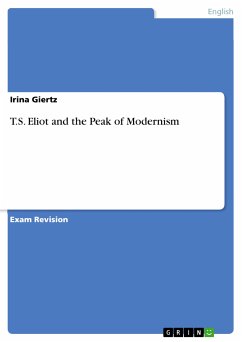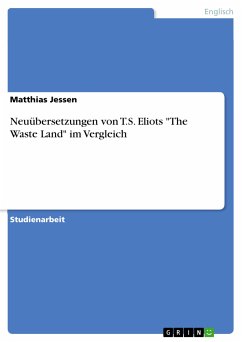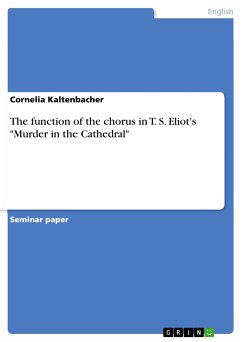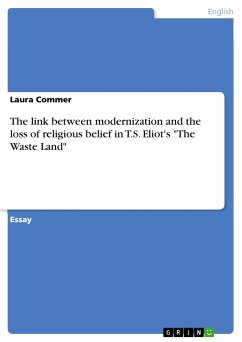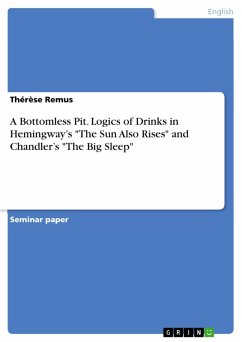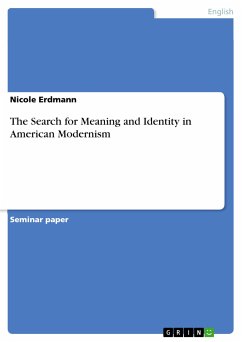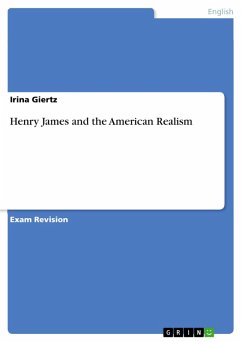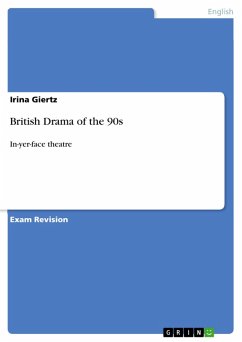Exam Revision from the year 2005 in the subject English Language and Literature Studies - Literature, University of Cologne (Institut für Englische Philologie), course: T.S. Eliot, language: English, abstract: Modernism is the art of the tradition of the new. It is experimental, formally complex, elliptical, and tends to associate notions of the artist's freedom from realism, materialism, traditional genre and form, with notions of cultural apocalypse and disaster. It is disputable when it starts (French symbolism; decadence; the break-up of naturalism) and whether it has ended. It can be regarded as a time-bound concept (from 1890 to 1930) or a timeless one (including Lawrence Sterne, John Donne, William Blake, Samuel Taylor Coleridge). The best focus remains a body of major writers: James, Conrad, Proust, Mann, Gide, Kafka, Svevo, Joyce, Musil, Faulkner in fiction; Strindberg, Pirandello, Wedekind, Brecht in drama; Mallarmé, Yeats, Eliot, Pound, Rilke, Stevens in poetry. Their works are aesthetically radical, contain striking technical innovations, emphasise spatial and rhythmic as opposed to chronological relations, tend towards ironic modes.
Dieser Download kann aus rechtlichen Gründen nur mit Rechnungsadresse in A, B, BG, CY, CZ, D, DK, EW, E, FIN, F, GR, HR, H, IRL, I, LT, L, LR, M, NL, PL, P, R, S, SLO, SK ausgeliefert werden.

